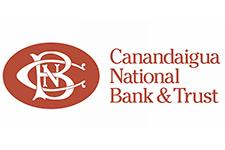Buying a Home
There’s no doubt about it–owning a home is an exciting prospect. After all, you’ve always dreamed of having a place that you could truly call your own. But buying a home can be stressful, especially when you’re buying one for the first time. Fortunately, knowing what to expect can make it a lot easier.
How much can you afford?
According to a general rule of thumb, you can afford a house that costs two and a half times your annual salary. But determining how much you can afford to spend on a house is not quite so simple. Since most people finance their home purchases, buying a house usually means getting a mortgage. So, the amount you can afford to spend on a house is often tied to figuring out how large a mortgage you can afford. To figure this out, you’ll need to take into account your gross monthly income, housing expenses, and any long-term debt. Try using our Mortgage Affordability Calculator to help you with the calculations.
Mortgage prequalification vs. preapproval
Once you have an idea of how much of a mortgage you can afford, you’ll want to shop around and compare the mortgage rates and terms that various lenders offer. When you find the right lender, find out how you can prequalify or get preapproval for a loan. Prequalifying gives you the lender’s estimate of how much you can borrow and in many cases can be done over the phone, usually at no cost. Prequalification does not guarantee that the lender will grant you a loan, but it can give you a rough idea of where you stand. If you’re really serious about buying, however, you’ll probably want to get preapproved for a loan. Preapproval is when the lender, after verifying your income and performing a credit check, lets you know exactly how much you can borrow. This involves completing an application, revealing your financial information, and paying a fee.
It’s important to note that the mortgage you qualify for or are approved for is not always what you can actually afford. Before signing any loan paperwork, take an honest look at your lifestyle, standard of living, and spending habits to make sure that your mortgage payment won’t be beyond your means.
Should you use a real estate agent or broker?
A knowledgeable real estate agent or buyer’s broker can guide you through the process of buying a home and make the process much easier. This assistance can be especially helpful to a first-time home buyer.
In particular, an agent or broker can:
- Help you determine your housing needs
- Show you properties and neighborhoods in your price range
- Suggest sources and techniques for financing
- Prepare and present an offer to purchase
- Act as an intermediary in negotiations
- Recommend professionals whose services you may need (e.g., lawyers, mortgage brokers, title professionals, inspectors)
- Provide insight into neighborhoods and market activity
- Disclose positive and negative aspects of properties you’re considering
Keep in mind that if you enlist the services of an agent or broker, you’ll want to find out how he or she is being compensated (i.e., flat fee or commission based on a percentage of the sale price). Many states require the agent or broker to disclose this information to you up front and in writing.
Choosing the right home
Before you begin looking at houses, decide in advance the features that you want your home to have. Knowing what you want ahead of time will make the search for your dream home much easier.
Here are some things to consider:
- Price of home and potential for appreciation
- Location or neighborhood
- Quality of construction, age, and condition of the property
- Style of home and lot size
- Number of bedrooms and bathrooms
- Quality of local schools
- Crime level of the area
- Property taxes
- Proximity to shopping, schools, and work
Making the offer
Once you find a house, you’ll want to make an offer. Most home sale offers and counteroffers are made through an intermediary, such as a real estate agent. All terms and conditions of the offer, no matter how minute, should be put in writing to avoid future problems. Typically, your attorney or real estate agent will prepare an offer to purchase for you to sign. You’ll also include a nominal deposit, such as $500. If the seller accepts the offer to purchase, he or she will sign the contract, which will then become a binding agreement between you and the seller. For this reason, it’s a good idea to have your attorney review any offer to purchase before you sign.
Other details
Once the seller has accepted your offer, you, your real estate agent, or the mortgage lender will get busy completing procedures and documents necessary to finalize the purchase. These include finalizing the mortgage loan, appraising the house, surveying the property, and getting homeowners insurance. Typically, you would have made your offer contingent upon the satisfactory completion of a home inspection, so now’s the time to get this done as well.
The closing
The closing meeting, also known as a title closing or settlement, can be a tedious process–but when it’s over, the house is yours! To make sure the closing goes smoothly, some or all of the following people should be present: the seller and/or the seller’s attorney, your attorney, the closing agent (a real estate attorney or the representative of a title company or mortgage lender), and both your real estate agent and the seller’s.
At the closing, you’ll be required to sign the following paperwork:
- Promissory note: This spells out the amount and repayment terms of your mortgage loan.
- Mortgage: This gives the lender a lien against the property.
- Truth-in-lending disclosure: This tells you exactly how much you will pay over the life of your mortgage, including the total amount of interest you’ll pay.
- HUD-1 settlement statement: This details the cash flows among the buyer, seller, lender, and other parties to the transaction. It also lists the amounts of all closing costs and who is responsible for paying these.
In addition, you’ll need to provide proof that you have insured the property. You’ll also be required to pay certain costs and fees associated with obtaining the mortgage and closing the real estate transaction. On average, these total between 3 and 7 percent of your mortgage amount, so be sure to bring along your checkbook.
posted by Christopher R. Spaker, AMP
Christopher is President of CNB Mortgage Company.

Source: Broadridge Investor Communication Solutions, Inc.
Home Town Funding d/b/a CNB Mortgage Company – Licensed New York Mortgage Banker, NYS Department of Financial Services, NMLS ID 213408
CNB Mortgage Company is a wholly owned subsidiary of Canandaigua National Bank & Trust.

